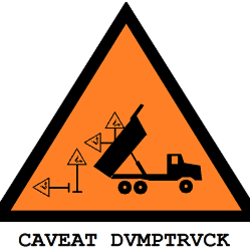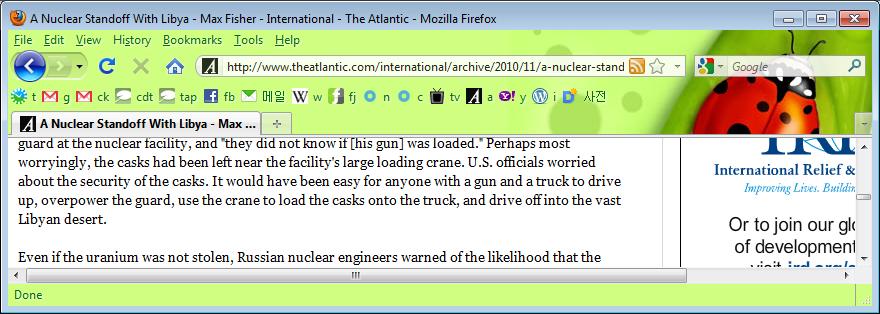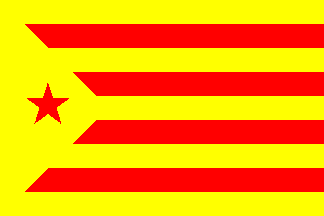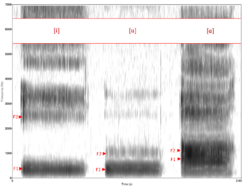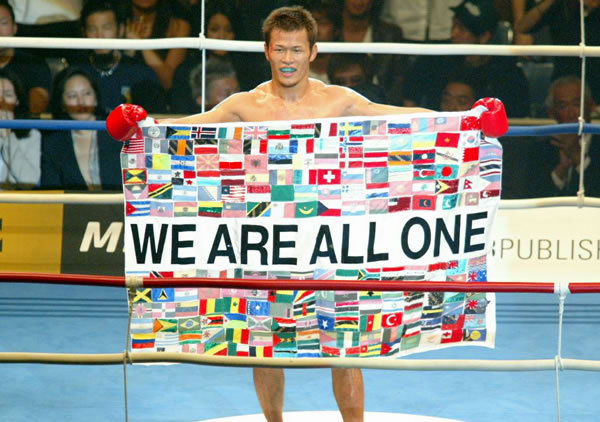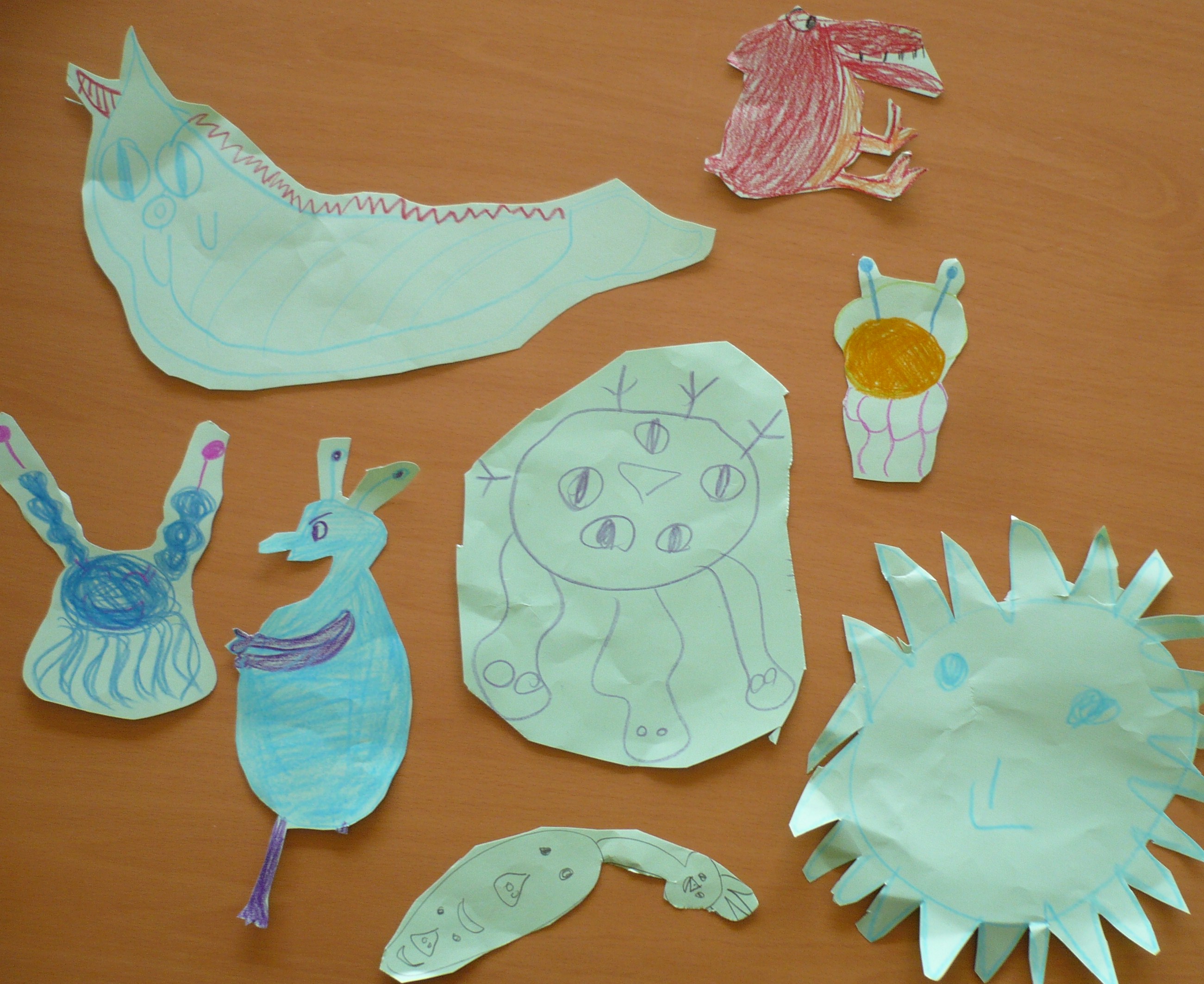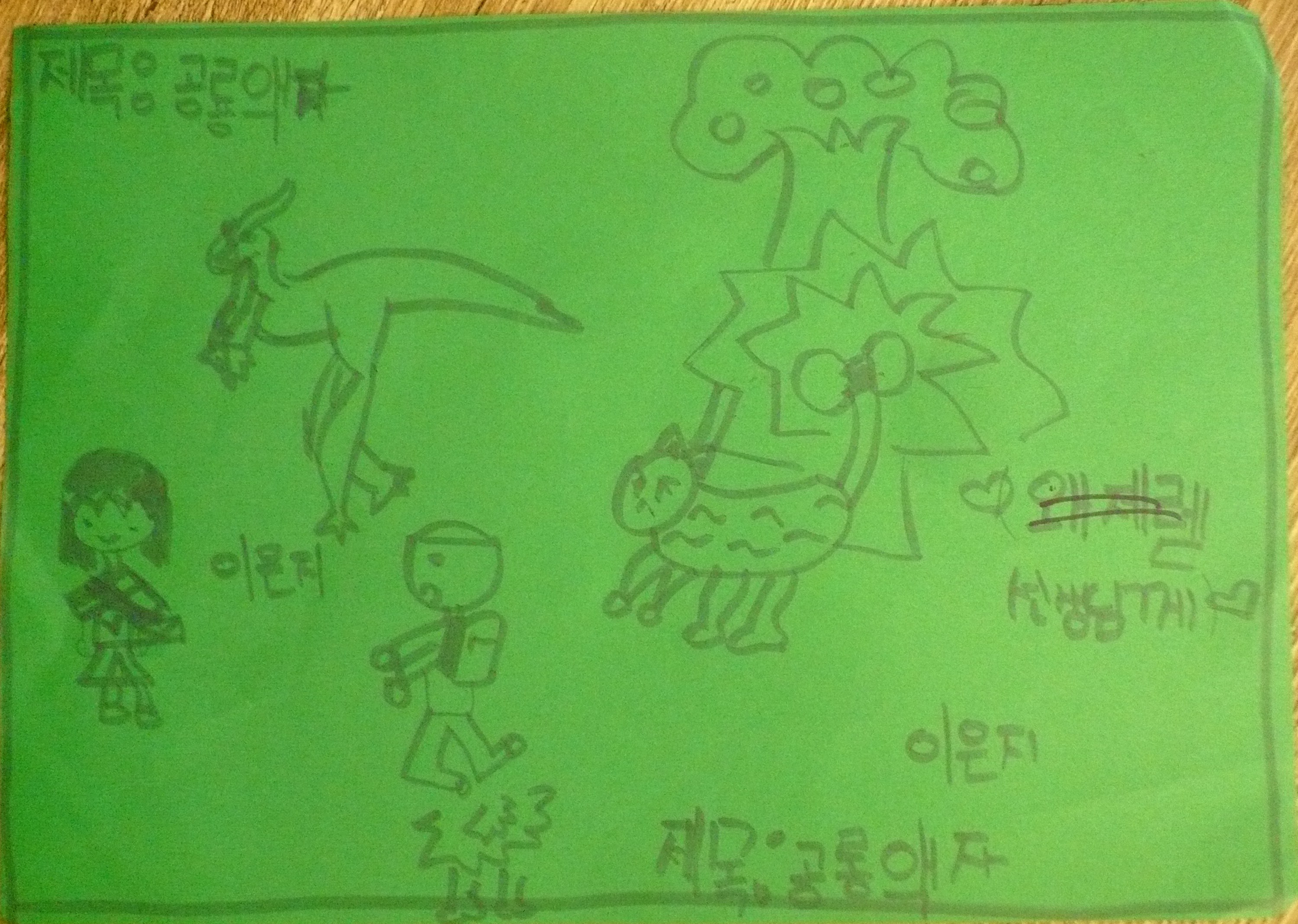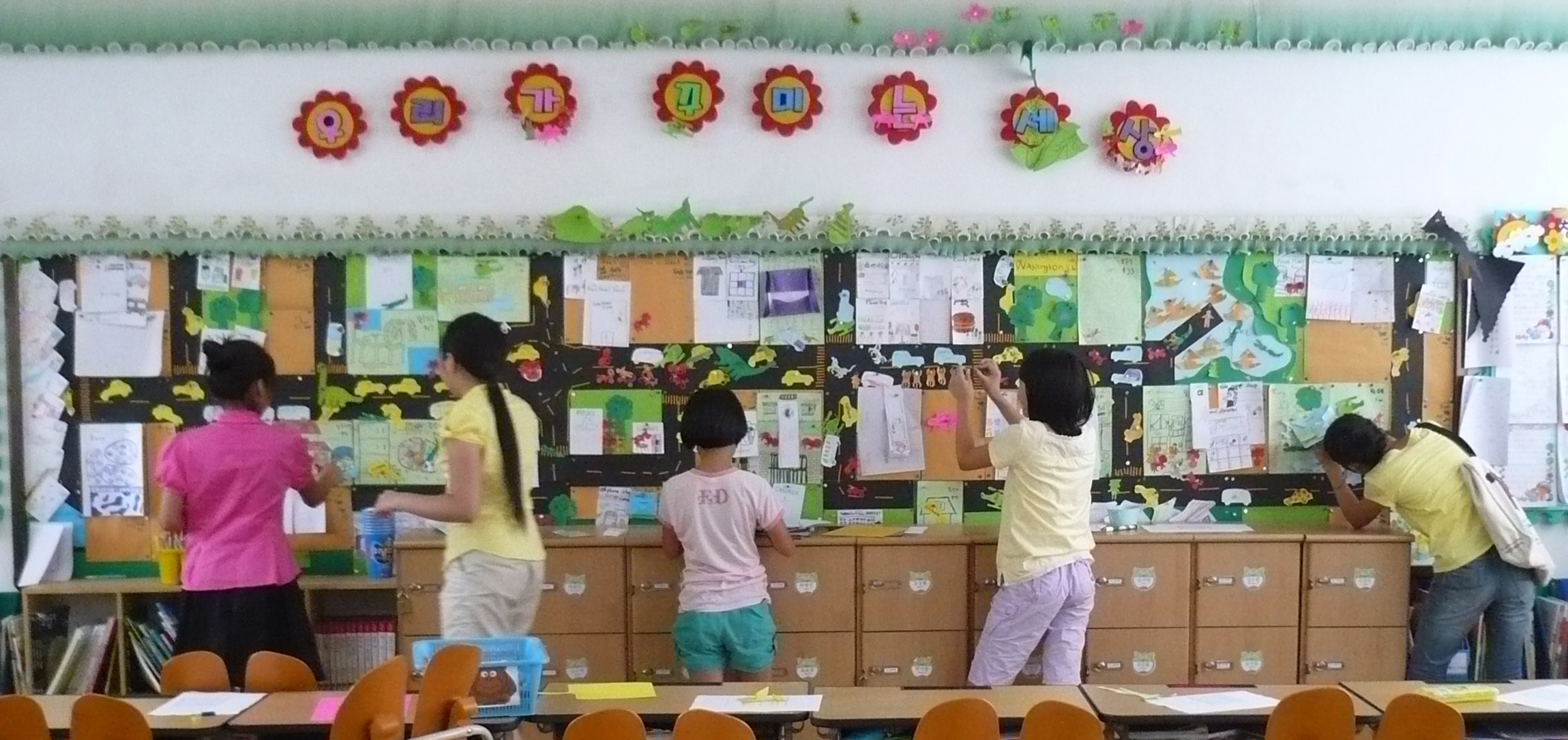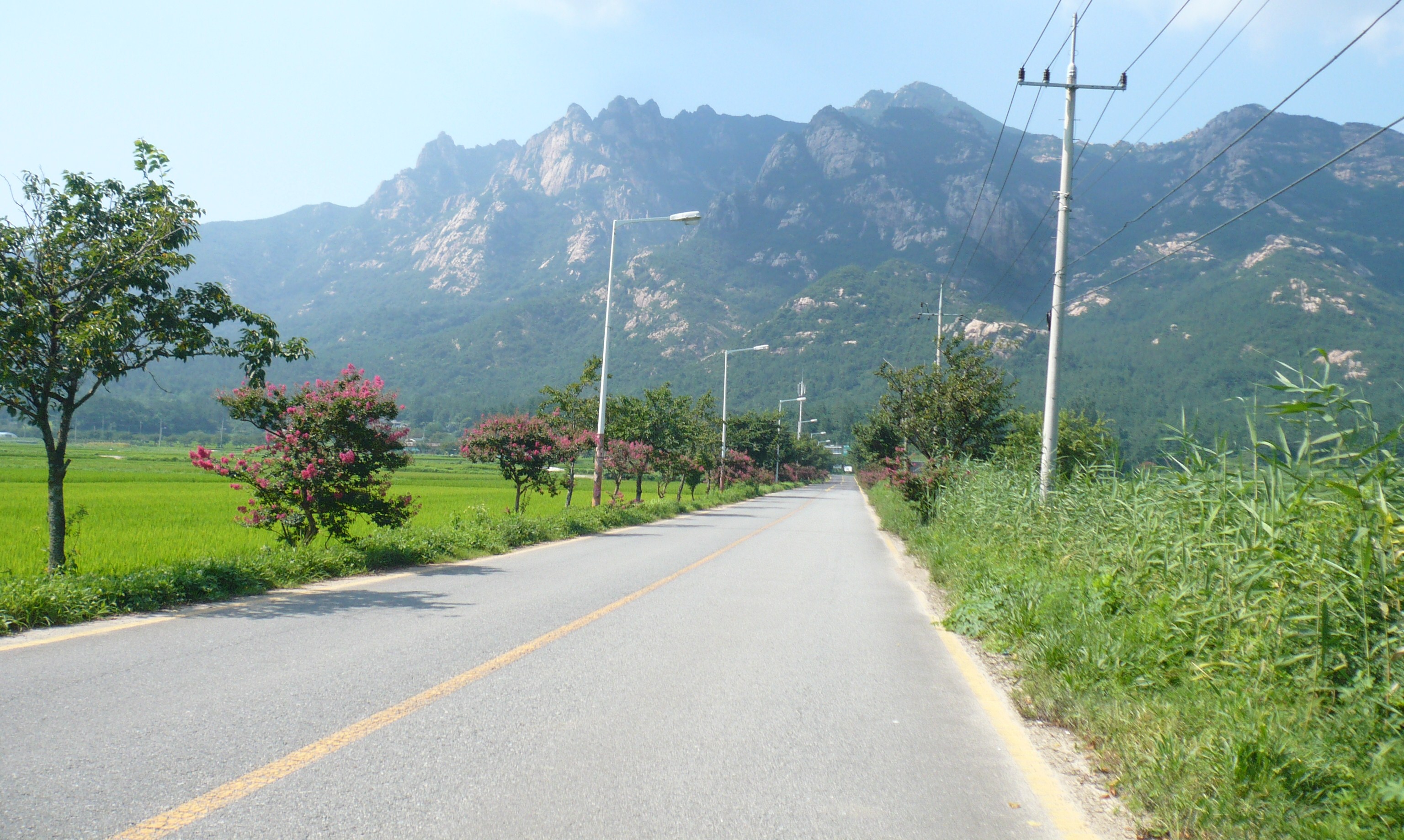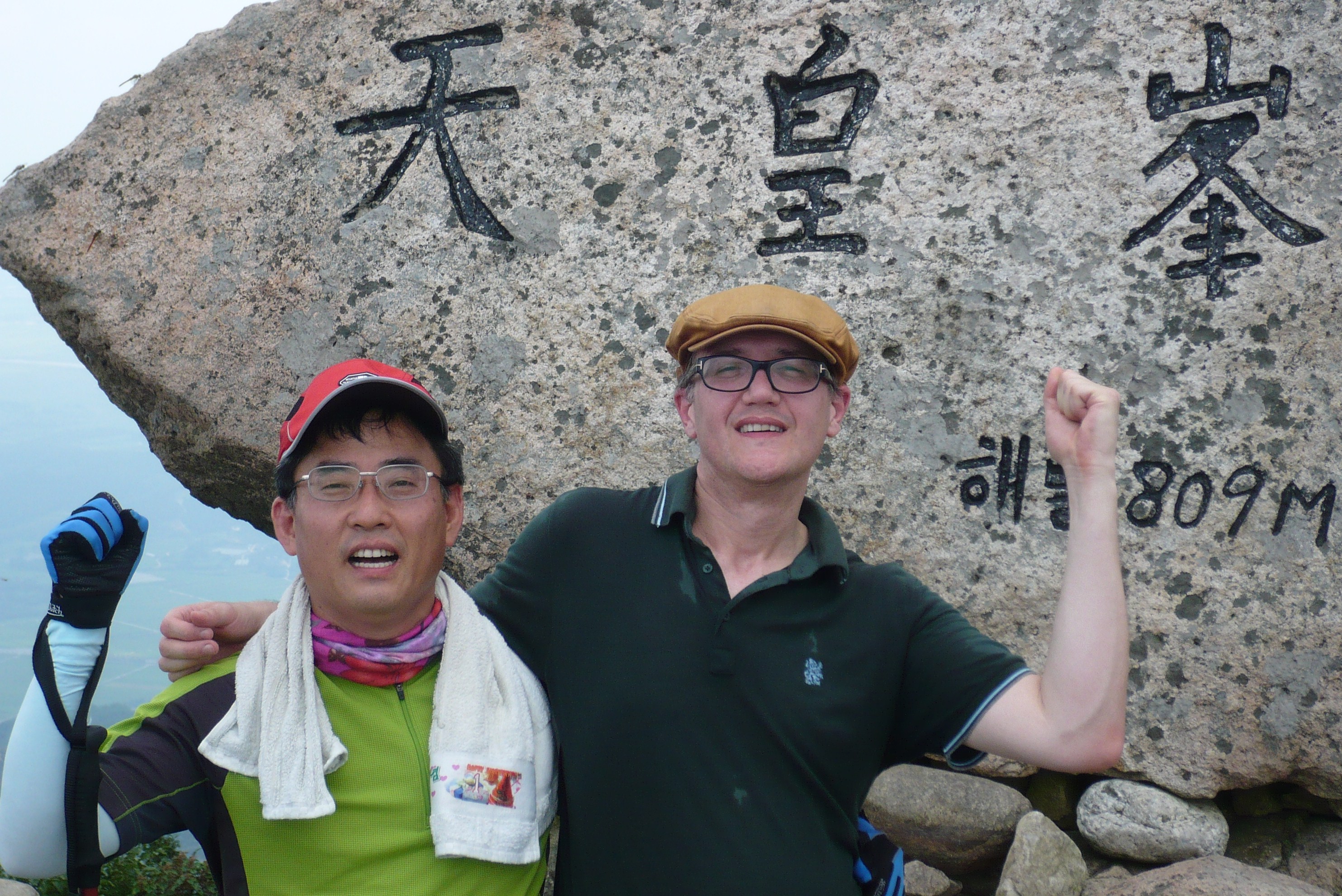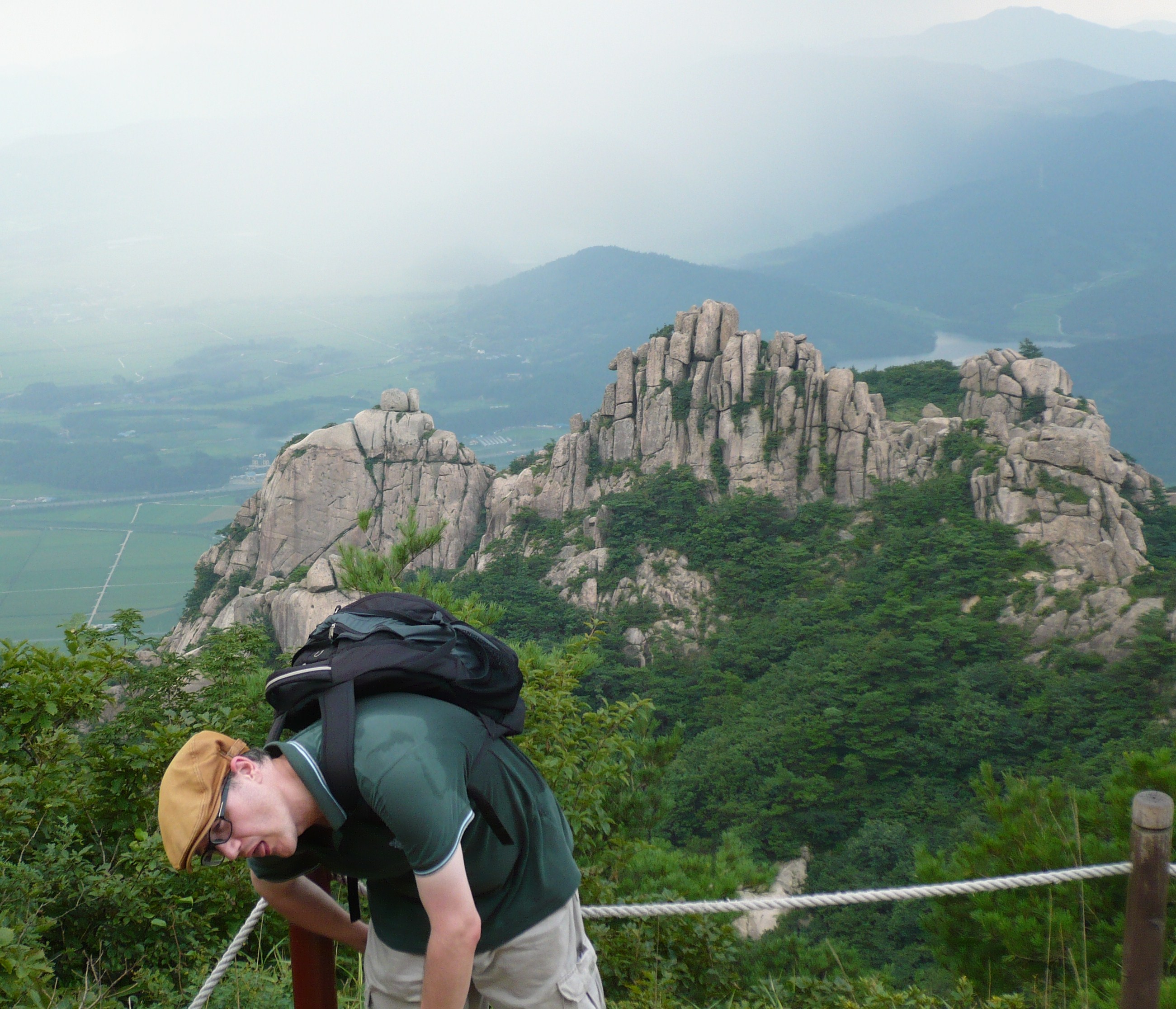Twice before, I’ve referenced my efforts to read a recently-acquired book entitled Understanding Minimalism (Hornstein, et al.). In my last entry about it, I’d made it up to page 5, and I was making some initial complaints.
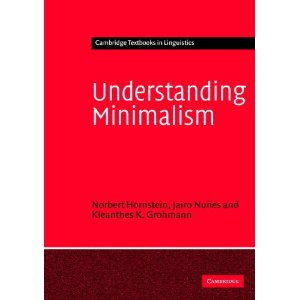 Now I’ve progressed to page 9, and I’m regaining some positivity about why it is I decided to try to undertake reading this book. I have long felt that the “traditional” Chomskyan approach to syntax theory is epistemologically naive. It relies far too much on a sort of ideologically blinkered introspection with respect to the “syntactic evidence,” and thus disregards the real linguistic production that’s out there in the “real world” – with all its strange, un-sentence-like constructions, incompletions, ellipses, mispronunciations (or typos, in text-based communication), etc., ad nauseum.
Now I’ve progressed to page 9, and I’m regaining some positivity about why it is I decided to try to undertake reading this book. I have long felt that the “traditional” Chomskyan approach to syntax theory is epistemologically naive. It relies far too much on a sort of ideologically blinkered introspection with respect to the “syntactic evidence,” and thus disregards the real linguistic production that’s out there in the “real world” – with all its strange, un-sentence-like constructions, incompletions, ellipses, mispronunciations (or typos, in text-based communication), etc., ad nauseum.
All these things are fully understandable, and “typical,” unsophisticated native-speakers rarely are able to enunciate, much less elucidate, judgments of “grammaticality” such as abound in most linguists’ efforts at syntactic theory (as I discover, almost daily, when trying to get Koreans to help me understand their language, in my own efforts to acquire it).
So this “minimalist project” is appealing to me because it promises a return to empiricism. Here is a quote from page 9, spanning the end of one paragraph and the beginning of another, that expresses something I’ve wished I could do myself, before (if I was actually a linguist and not just a dilettante):
…one minimalist project would be to show that all levels other than LF [Logical Form = representation of meaning in the brain] and PF [Phonological/Phonetic Form = actual spoken language passing through the air] can be dispensed with, without empirical prejudice. More concretely, in the context of a GB [Government and Binding]-style theory, for example, this would amount to showing that D-Structure (DS) and S-Structure (SS) [DS and SS are components of “traditional” Chomskyan syntax, e.g. Government and Binding and antecedent theories] are in principle eliminable without any empirical loss.
I remain suspicious about what level of empiricism will be achieved – there still is a reliance on “introspective judgments of grammaticality” which I always have disliked. And worse, there is the mere fact of labeling the “internal representation” end of any linguistic faculty as a “Logical Form.” The problem with this conception is that it flies in the face of most of what we understand from neurology or empirical psychology: human brains don’t do much logic, on the inside. “Logic” such as is used in LF engines in syntactic theory is artificial, external, mathematicized, philosophical. It’s precious Montague semantics and beloved lambda calculus. Such things may have some “real” correlates in neuronal/synaptic architecture, but I don’t think we’re going to make much progress with the “brain as logic engine” model – if we were going to make such progress, we’d also be making progress with artificial intelligence (which is simply the inversion: “logic engine as brain”) – which we’re most definitely not.
I would prefer a more neutral conception of the “internal representation,” that doesn’t betray such preconceptions – as the term “Logical Form” does – about how it might actually work. Semantics strikes me as by far the shakiest of the foundations of contemporary linguistic theory – we really don’t seem to know a lot about how semantics work.
What is meaning? In passing, I will return to pointing at Taylor’s important work, Linguistic Categorization – which addresses the important intersection between semantics and what one might call meta-syntax – what do we really know (as unreflective speakers, not as epistemologically well-grounded linguists) about the grammaticality of what we are saying?
